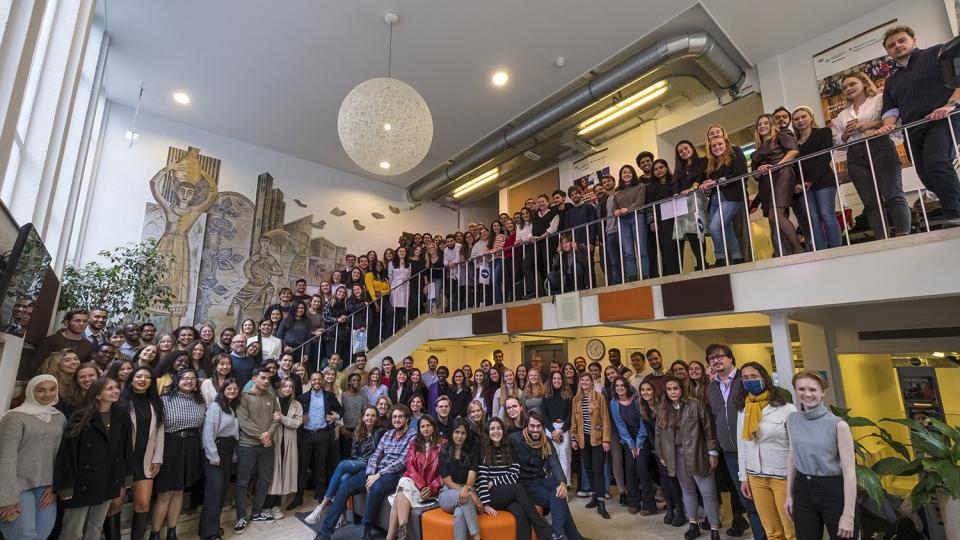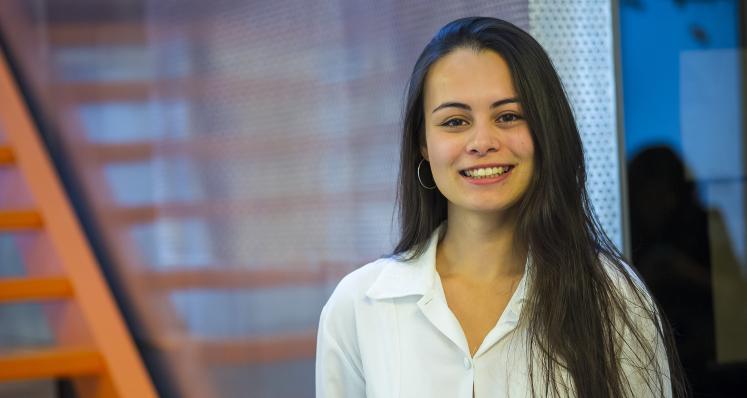As a Canadian, choosing to study at McGill University was an easy choice back in 2016: the best education in Montreal with the greatest international outreach - and it brought me just that. Then in 2021, I moved to the Netherlands to complete UNU-MERIT’s Master in Public Policy and Human Development, which provided the missing piece to bring me to my dream job today in Geneva’s humanitarian sector.
At McGill, I pursued a Joint Honours BA in Hispanic Studies and English Literature, focusing on post-colonial issues in the Americas. These programs not only enhanced my language and writing skills—making me fluent in English and Spanish—but also nurtured my curiosity about socio-cultural dynamics and critical storytelling, which continue to shape how I approach my work today. I also had the chance to take full advantage of McGill’s network by doing an exchange semester in Colombia, receiving a McGill International Experience Award to do an internship at the UN’s Office against Drugs and Crime in Mexico City, and a second internship with the UN in the Dominican Republic. Both internships undoubtedly changed the course of my career path by bringing me closer to data and evidence-based policy making, while giving me insights into the UN system.
After leaving McGill—and the pandemic—I was determined to find a Master’s in Public Policy that would build on my humanities background with rigorous quantitative skills, had hands-on learning, and would open doors to opportunities in Europe. The dual MSc and MPP from both Maastricht University and United Nations University (UNU-MERIT) particularly appealed to me for the career opportunities it opened, whether I chose academia or international organizations.
The program combined the best of both worlds for me: the quantitative and analytical knowledge I was missing, from statistical analysis to interpreting datasets, with dynamic specializations—in my case, Migration Studies—that delved into real-life policy issues (and the nuances of the topic outside of Canada). The MPP gave me the chance to explore the intersection of policy and practice with data analysis modules, teaching me how to evaluate and synthesize diverse sources of information into actionable insights. My thesis focused on community sponsorship for refugee resettlement, a scheme created in Canada four decades ago and which is only recently making its way into Europe. It allowed me to enter the space I was most interested in: the meaningful integration of people forced to leave their homes.

A few months after submitting my thesis (and enjoying beautiful Europe), I moved to Geneva to start working as a Reporting Associate at the Internal Displacement Monitoring Centre, a research branch of the Norwegian Refugee Council. As part of my work, I put into perspective the data collected by the team with contextual and policy research. I continue to draw on the data analysis skills I gained during my Master’s to identify trends, interpret findings and present them in a way that resonates with diverse audiences. At the same time, I build on my literature undergraduate to synthesize data into compelling narratives and craft reports that communicate the humanitarian impact of displacement to policymakers, donors and the public. Most recently, we published a report on internal displacement in Africa over the last 15 years, where we highlight the increased vulnerability of forcibly displaced people as a result of both violence and disasters. We also work with other research institutes, including UNU-EHS in Bonn, on mapping risk in the context of climate change, allowing me to work at the crossroads between research and policymaking. Plus, I get to live in Geneva, one of the most international and multilingual cities in the world (maybe after Montreal), with many fellow UNU-MERIT alumni!
For those of you considering the MPP, I can’t recommend enough this program that challenges you to think critically, work with data, and tackle issues that truly matter. It helped me bridge the gap between humanities and science, between theory and practice, and between research and real-world impact. It’s this blend of skills—critical thinking, data literacy, and a passion for global issues—that has equipped me to navigate a career in public policy and human mobility. Bonus points: I loved the international student vibe of Maastricht, the ease to travel throughout Europe and I got to meet wonderful people who became some of my closest friends!

